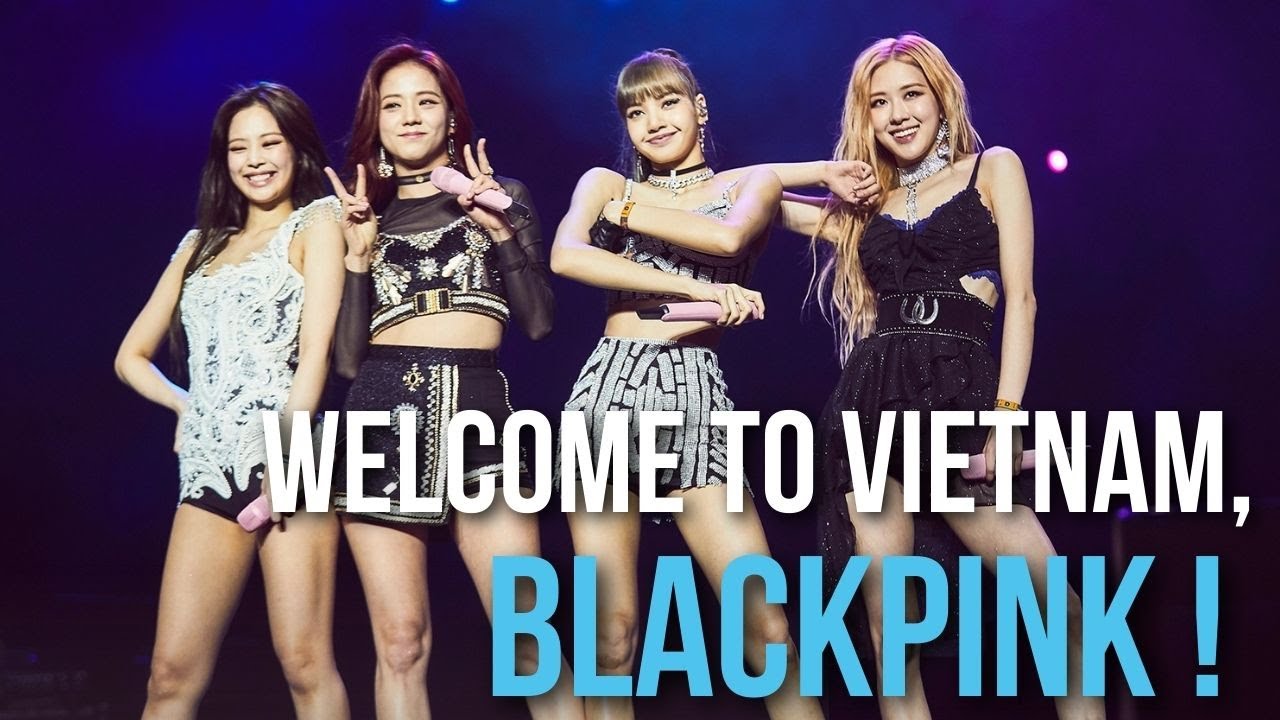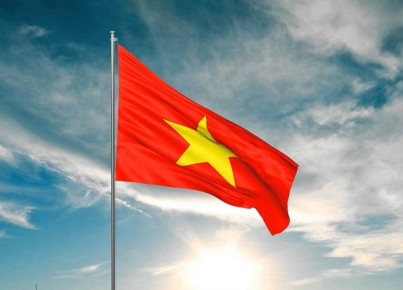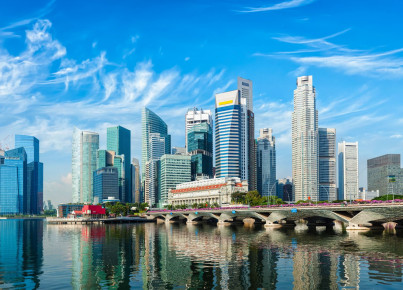Since Vietnam and South Korea established formal diplomatic relations in 1992, however, popular culture has proven to be Seoul's best ambassador to the Southeast Asian country
By Annalisa Manzo
The so-called "Korean Wave"-hallyu in Korean-the increase in the global spread of South Korean culture has now reached all corners of the globe, and in Vietnam it extends to a wide range of sectors: entertainment, business, fashion and even soccer. Economic ties between the two countries run deep. South Korea has been the largest or second largest investor in Vietnam almost every year for more than a decade. Choi Bundo, president of the Korean Chamber of Commerce and Industry for Central and South Vietnam, told Nikkei Asia that tax and trade agreements have helped nurture economic ties between the two countries. In addition, high satisfaction with Vietnam's high-quality workforce and expectations that it can take over the role currently held by China-because of unstable U.S.-China relations-are equally important reasons why Korean companies choose Vietnam, Choi said.
Since Vietnam and South Korea established formal diplomatic relations in 1992, however, popular culture has proven to be Seoul's best ambassador to the Southeast Asian country. It all started in the late 1990s, when Korean TV series-so-called K-dramas-began to be broadcast on local television thanks to sponsors from some Korean companies, sparking public interest in pop music, K-pop and other Korean cultural exports such as movies, food, travel, fashion and cosmetics. Now, after more than two decades, this "Korean wave" continues to be very popular in Vietnam and throughout Southeast Asia.
Many scholars believe that this is partly the result of the Korean government's policy of promoting South Korea as "a dream economy of icons and aesthetic experience." The aesthetic traces of Korean pop culture in Vietnam are tangible. Images of Korean artists pervade public places, decorating billboards, department stores and beauty salons.
The popularity of all things Korean-food, cell phones, and cosmetics brands in particular-reflects a general attitude that sees South Korea as a modern and intriguing culture. Although the Vietnamese are also very open to Western culture, underlying cultural differences remain. In contrast, South Korea turns out to be a closer model of Asian modernity, the development of which thus seems more within the reach of the Vietnamese public. After all, South Korea's miraculous economic growth is quite recent, and Korea shares clear cultural similarities with Vietnam, including a Confucian cultural heritage, an emphasis on family ties and respect for elders, and a collectivist value that emphasizes conformity.
Many Vietnamese see in the metropolitan and glamorous lifestyles embodied by Korean stars on screens an alluring and desirable future. The success stories put forth by K-dramas serve as an inspiration to reflect on one's life and strive for success. The portrayal of the tireless pursuit of status and money by K-drama characters resonates with many Vietnamese viewers who are encouraged to be self-sufficient by the Vietnamese government's recent neoliberal social policy. Decades after the 1986 Doi Moi ("renewal"), marked by Vietnam's transition to a market economy and integration into global trade, the government has transferred some welfare responsibilities to the market and now promotes self-generated wealth and success as patriotism. In addition, some have noted that the dominance of South Korean pop culture in Vietnam is joining recent socio-cultural developments in the country. Romantic K-dramas and sentimental K-pop ballads, which emphasize pure and ideal romantic love, self-love, and self-awareness, have touched the chords of a changing Vietnamese society, which is bringing in its media a turn toward the ordinary and private.
In the spread of Korean pop culture, K-pop music plays a predominant role. From a local trend to a global phenomenon, K-pop has spread worldwide since the early 2000s, starting in the Japanese music market and spreading to East Asian countries until the mid-2010s. Notably, 2012 saw the genre make its debut in the global music industry. Indeed, in the summer of 2012 Psy set unprecedented records on the music charts, gaining international fame with his mega hit "Gangnam Style." Later, the word "K-pop" was included in the Oxford English Dictionary to designate "Korean pop music."
A decade has passed and K-pop is no longer considered just a regional music genre that has temporarily captured the attention of a global audience. It has taken root as an important subcultural genre and is gaining prominence on the international stage as a new standard for the industry. One of the key defining factors of K-pop, and one that continues to show the growth potential of this genre, is its receptivity to change and new sources. Indeed, it has shown exceptional vigilance in adapting and using technological advances to develop a highly profitable business model. Just as the recent concert by the world-famous South Korean girl group Blackpink demonstrated, one of the many ways in which South Korean influence has swept the country. The superstar concert gave Vietnam its biggest dose of K-pop to date, much to the delight of the rapidly growing local fandom.
According to data from the Korea Foundation, which conducts annual hallyu surveys around the world, Vietnam had 13.3 million fans of the culture in 2022, the third highest in the world, after China and Thailand.
The price of tickets did not help deter fans, even though the average monthly salary of a Vietnamese worker is around seven million dong, although the number of wealthy Vietnamese increased 110 percent from 2016 to 2021, the fourth highest growth in Asia, reports the Knight Frank Wealth Report.
The cheapest tickets started from 1.2 million ($68.30) up to 9.8 million Vietnamese dong for VIP seats. On the morning of the second concert on July 30, local media reported that some VIP tickets were being sold for up to 30 million dong each. As the last stop in Asia of their ongoing world tour, demand has been high since the dates were released. Some 67,000 spectators packed My Dinh Stadium for what industry insiders described as the "biggest music event" ever held in Vietnam.
Tran Tuan Tai, professor of finance at Massey University of New Zealand, noted that the cost of tickets in Vietnam, relative to GDP per capita, was the highest among the other Born Pink World Tour stops. Interestingly, the most expensive ticket in Vietnam - amounting to 9.8 million dong - was higher than a similar ticket in other countries such as Indonesia (3.8 million rupees - $335) and Singapore ($398), both of which have higher GDP per capita than Vietnam. According to Tai, fueling demand in Vietnam is the fact that the country is usually not a common destination for global music shows; the most popular Southeast Asian destinations remain Thailand and Singapore. Vietnam, with a population of 100 million, has a large and growing middle class that is eager to spend on cultural and entertainment activities such as K-pop concerts, Tai added. According to the World Data Lab, Vietnam's middle class population is estimated to be one of the fastest growing populations in the world between 2020 and 2030. "Paying high prices for concert tickets does not mean that Vietnamese people are rich, but rather underscores their willingness to spend," said Nguyen Cuong Bach, managing director of tourism-focused marketing agency Asia Lion. "This shows a more mature entertainment tourism market in Vietnam."
The two Blackpink concerts had a very positive impact on Vietnam's economy. The Hanoi Department of Tourism said the city received 170,000 visitors during the two days of the shows, including 30,000 foreigners. In all, they spent about 630 billion dong. The average hotel occupancy rate in Hanoi in July was estimated at 60.8 percent, an increase of 19.2 percent compared to July 2022. The number of visitors to Hanoi tourist destinations on the weekend of July 29-30 also increased by 15 to 20 percent compared with the previous weekend. In the weeks before and immediately after the concerts, a significant increase in bookings by South Korean and Chinese visitors was observed for cruises in Ha Long Bay, a UNESCO World Heritage site about 160 kilometers from Hanoi.
After Blackpink's performance, Tran Sy Thanh, chairman of the Hanoi People's Committee, sent a letter of thanks to the band, noting that their concerts had enhanced Hanoi's image and standing as a peaceful, safe and friendly destination.
Lang Minh, professor of media and digital literacy and educational consultant at MindX, said the Vietnamese government's approach to the culture industry is a way to exercise "soft power"-the ability to influence others through non-coercive means. "Vietnam suffers from enormous horizontal pressures from surrounding countries with rapidly developing cultural industries, Thailand, South Korea, China and Japan. This pushes Vietnam to pay attention to improving its cultural industry, not only to earn money but also to emphasize its national values." Thus, some opinions are gaining ground that Vietnam wants to take advantage of the popularity of K-pop to leverage economic benefits-both soft and hard-with South Korea, one of its most important trading partners. Last December, the bilateral relationship between South Korea and Vietnam was transformed into a comprehensive strategic partnership. Riding the hallyu wave, the two countries are ready to write a new future.






